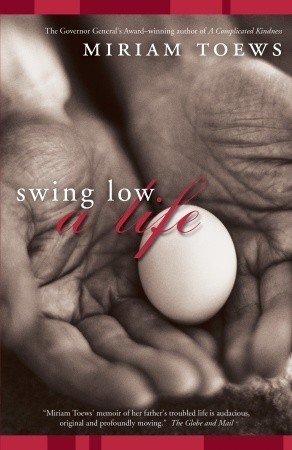What do you think?
Rate this book


240 pages, Paperback
First published January 1, 2000
"My psychiatrist had, when I informed him that I was planning to get married, expressed no small amount of shock and dismay. He told me that those who suffer from manic depression have a lot of difficulty making marriages or any long-term relationship work, and when I told him that I was also planning on becoming a school teacher, he almost hit the roof. The responsibility, Mel, the consistency, the patience, the endurance . . . all these things are extremely difficult to maintain with an illness like yours . . . won't you reconsider?"
"Never, ever did I admit or acknowledge even to myself that I was sick. My lapses into depression, I felt, were due to a weakness in my character, and my disappointments and failures in life, though they were rather typical of any average life, were what I felt I deserved. And so I resolved, with steely determination, to become a better human being."
"She [Miriam's sister] wasn't as quick as Miriam to denounce everything about this place as being backward, soul-destroying, hypocritical, or excruciatingly dull."